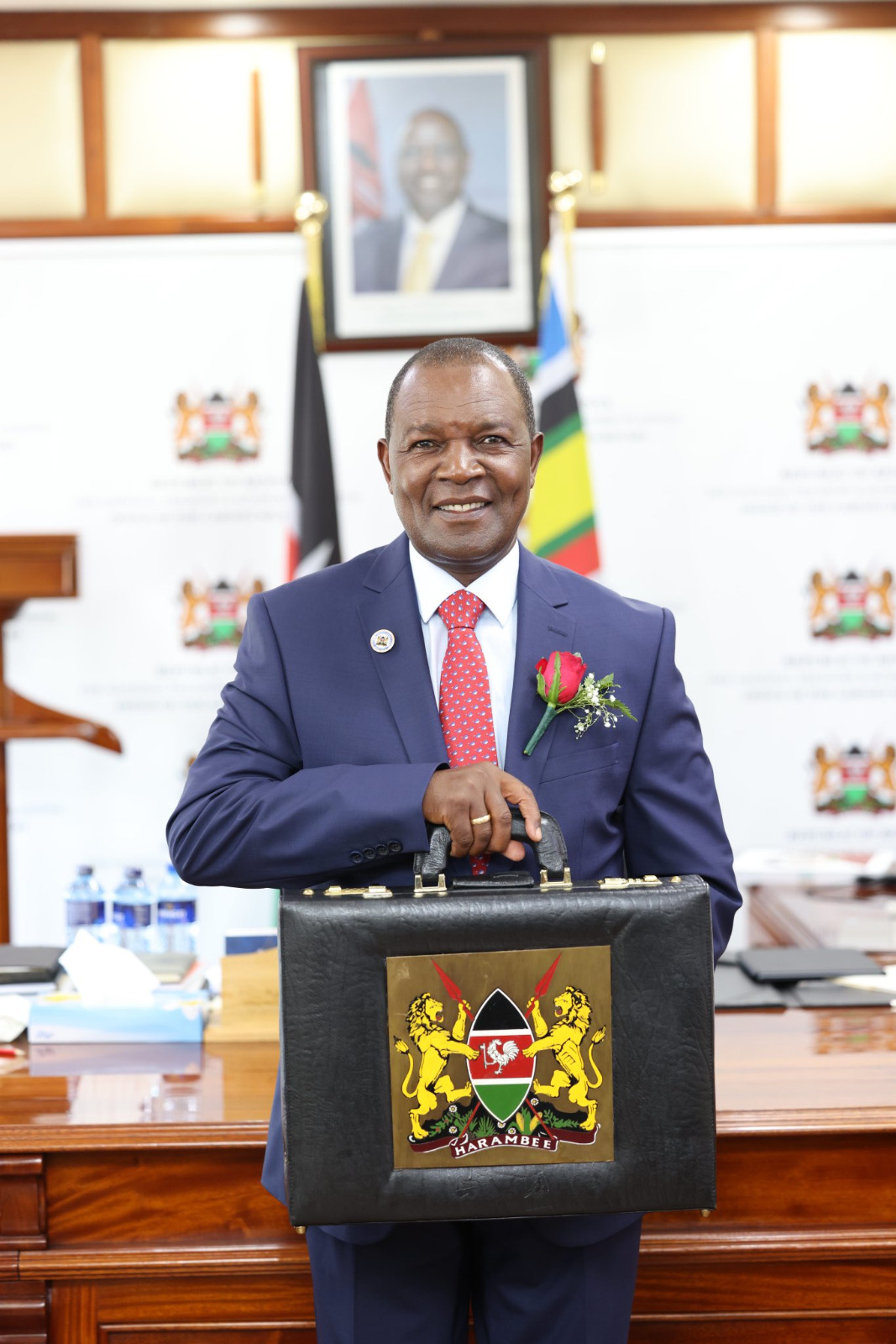He has been in charge of the country’s treasury for twenty months, and as the cabinet secretary in charge of the most important docket in the country, all hopes were on him to turn around Kenya’s economic fortunes.
However, in his quest to steer the country on a recovery path through the Finance Bill 2024 and implement priority projects under the Bottom-up Economic Transformation Agenda (BETA), Prof Njuguna Ndung’u stirred up a hornets’ nest as the tax proposals set off a series of countrywide anti-government protests leading to its withdrawal by President William Ruto.
On Thursday, Prof Ndungu’u who previously served as the 8th Governor of the Central Bank of Kenya was among 22 cabinet secretaries who were dismissed by President William Ruto.
“Recent events that necessitated the withdrawal of the Finance Bill which will require a review and reorganization of our budget and fiscal management have brought us to an inflexion point,” said President Ruto when he announced changes in the national government executive.
Prof Ndung’u assumed office at time the country was unwinding effects of covid-19 which disrupted supply chain, a mounting debt burden and revenue shortfalls.
In his 2024 Budget Speech before the National Assembly, Prof Ndung’u said the country’s fiscal policy which is meant to support BETA, would ensure the government undertakes a fiscal consolidation in a bid to slow uptake of additional debt which has ballooned to Ksh 10.4 trillion by end of March 2024 without harming the economy.
“Our fiscal policy is geared towards supporting BETA through continued implementation of a fiscal consolidation plan designed towards slowing down growth of public debt without compromising economic growth,” he stated during the 2024 Budget Speech before the National Assembly.
He added, “The fiscal consolidation efforts will continue to target domestic revenue mobilization and rationalization of spending through improved public financial management, while reallocating resources to priority areas.”
However, the Finance Bill which had proposed additional tax measures to raise Ksh 2.92 trillion through ordinary revenues to fund the FY2024/25 budget pegged at Ksh 3.99 trillion perhaps could be Prof. Ndung’u biggest undoing as the proposed law triggered nationwide anti-government protest calling for its withdrawal.
Amended proposals
In a bid to quell the protests, the Kenya Kwanza announced new amendments to the bill before its entire withdrawal.
Some of the amendments include the removal of the proposed 16pc Value Added Tax on bread, transportation of sugar, financial services, foreign exchange transactions as well as the 2.5pc Motor Vehicle Tax.
The administration also put on hold proposals to increase mobile money transfer fees, removed Excise Duty on vegetable oil.
“Levies on the Housing Fund and the proposed one on Social Health Insurance will not attract income tax, putting much more money in the pockets of employees,” said President Ruto.
The administration also reviewed the proposed Eco Levy to be imposed only on imported finished products and exempted locally manufactured products, including sanitary towels, diapers, phones, computers, tyres and motorcycle from the levy.
The threshold for VAT registration was also increased to Ksh 8 million from Ksh 5 million which shielded small businesses from VAT registration.
Additionally, the electronic invoicing ETIMS introduced by the Kenya Revenue Authority was rescinded from farmers and small businesses with a turnover of below Ksh 1 million and imposed excise duty on imported table eggs, onions and potatoes to protect local farmers.
While the withdrawal of the bill has led to Kenya’s credit worthiness being downgraded to Caa1 with a negative outlook by credit rating firm Moody’s the country now awaits President William Ruto’s next move that will help regain investor confidence and set the country on a growth path.





